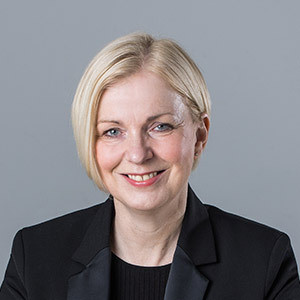Leadership is a characteristic easily attributed, and a word often thrown around. But what does it take to earn a reputation as a great leader?
Type ‘what is leadership’ into Google, and you’ll be faced with around 466,000,000 results.
Evidence, if it were needed, that leadership is a hot topic.
It’s one that attracts diverse - often very definite - opinions, and it continues to stimulate fierce debate.
That’s why I think the recent Leadercast Live event was so successful.
It’s the world’s largest one-day leadership event, and it returned to Aberdeen earlier this month, bringing together around 200 professionals, entrepreneurs, students and academics under one roof at the Aberdeen Exhibition and Conference Centre.
After a morning of speakers from the north east, there was a live broadcast from Atlanta, Georgia, in the US, watched by more than 100,000 people worldwide.
I was the day’s opening speaker, with Bob Keiller, chairman, Scottish Enterprise; Ray Riddoch, Nexen UK MD and SVP Europe; and Gavin Oattes, Aberdeen host and MD of Tree of Knowledge, all taking to the stage before lunch.
US speakers included Molly Fletcher, former sports agent; Tyler Perry, director, playwright, producer and actor, and Jim McKelvey, entrepreneur, co-founder of Square and founder of LaunchCode.
Under the umbrella of the ‘powered by purpose theme,’ common threads running through the presentations included finding a sense of direction, with few suggesting there was a masterplan; the power of storytelling, trust and effective communication; and learning from - or rather listening to - your mistakes.
Personal perspective
So what did I talk about?
I see the idea of ‘finding your purpose’ as a matter of travelling in the right direction: you may be diverted along the way, take a wrong turn or even have some bad luck, but you’ll get there.
My journey saw me training in Edinburgh and Glasgow after studying in Aberdeen.
And my introduction to construction law - an area where I’ve been an accredited specialist for many years — came when the firm I was working with acted for a number of the contractors involved in building Murrayfield stadium.
I joined Ledingham Chalmers when I came back to Aberdeen, and have been a partner for the past 18 years. I continued to focus on construction law.
I was made partner at 30, still relatively young for professional services, and in 2012 I was appointed chairman. That changed my focus from delivering client work to the business itself.
So if my master plan was to have a senior role in running a law firm, it worked out well!
What I did within the firm was find a purpose, a direction. At different stages of my career, I saw something I thought I would enjoy doing, and where I felt I could make a contribution or have an impact.
So if I were crafting a plan for my 20-year-old self with what I know today, what would I include?
Work hard - simply turning up and putting in the hours isn’t enough. You need to demonstrate value and worth.
Don’t try to be something you’re not - the most driven are not always the ones making the most noise
Luck and timing - no doubt being in the right place, at the right time, helps if you’re ambitious, as does being able to see, and use, a window of opportunity
You’re on a conveyor belt - delivering the work well keeps the conveyor belt moving. If you’re ambitious, you have to keep it moving AND keep an eye out for the windows of opportunity
Tradition is a thing of the past - people run their lives and careers in increasingly diverse ways, and there are benefits to that
Get the best out of people you work with - evaluate how others work to get the best out of them
Retain your sense of humour - a sense of humour can get you through a bad day in the office or, in my case, a 500 page PFI contract with 25 appendices
Don’t be intimidated by all the confident people you see around you - they’re generally the same as you: not that confident and a bit insecure
Work with people you respect - you don’t have to be bosom buddies, but if you don’t respect them, you’re in the wrong place
Always recruit people better than you - you just have to speak to my colleagues to see that!
And why would I tell my younger sense that it’s even worth finding your purpose?
Simply because it will make you better at what you do.
Perhaps more importantly it will make you feel happier about what you do, and your impact on the world.
Which can only be a good thing.
Jennifer Young
Managing partner
Ledingham Chalmers chairman and partner, Jennifer Young, continues to be ranked as a leader in the field of construction law, having been accredited by the Law Society of Scotland as a construction law specialist for more than 14 years.
She is a director on the board, and vice president, of Aberdeen & Grampian Chamber of Commerce; is an elected member of the policy council of CBI Scotland; and a member of YPO.
Posted: May 16th, 2017
Filed in: Jennifer Young,


